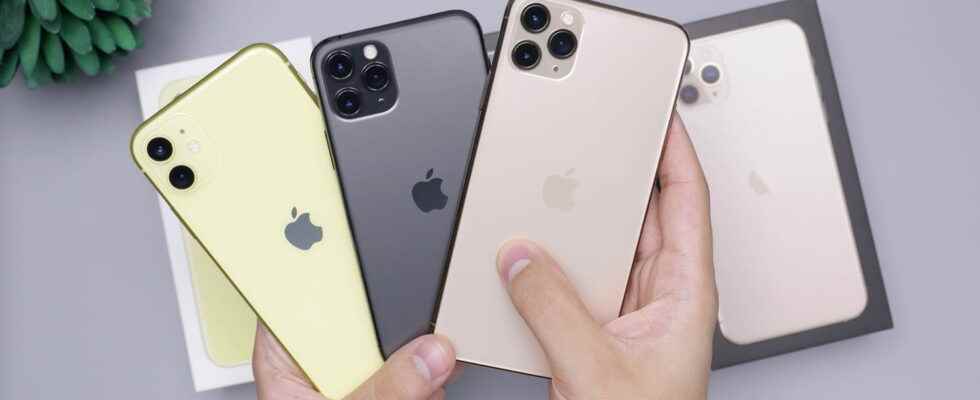Before buying a smartphone, it is essential to take into account its reliability and durability, in order to avoid unpleasant surprises and early renewal. And in this area, some brands are better than others…
When you are about to buy a new smartphone, you are generally interested in many criteria: design, size and quality of the screen, photo sensors, autonomy, processor, memory, storage capacity, price… But, often, we forget a very important detail: the reliability of the product. This is an essential parameter to take into account to avoid “trash tech”, this phenomenon which pushes to constantly renew its equipment, because of an irreparable breakdown or a skilfully programmed obsolescence. Without even mentioning the impact on the environment of this practice maintained by certain manufacturers who clearly push for (over)consumption, it is important to know that the product you are buying is durable, in order to be able to use it for a long time. or have it easily repaired if needed. It is also in this sense that the legislation now requires traders to affix a repairability index on the labels of certain products – household appliances since the beginning of November 2022, the others will follow thereafter.
It is therefore essential to make the design of electronic devices more sustainable, in order to avoid premature and unnecessary renewal of equipment that is still functional, which generates a lot of electronic waste, and therefore pollution. In order for consumers to be able to make an informed choice and choose the most durable smartphone possible, Fnac-Darty has established a ranking of the most sustainable brandsbased on the extensive feedback from their 2,500 After-Sales Service (After-Sales Service) experts, who take care of more than 2.5 million products each year.
To achieve this classification, Fnac-Darty based itself on two criteria: the reliability and the repairability of the product. Reliability is the ability of the device to operate normally without breaking down. Repairability, on the other hand, is the ability of the product to be repaired thanks to its ease of dismantling, but also thanks to the availability of spare parts and their price – a new parameter which was added this year. by the firm. A durable product therefore, it is a product that serves a long time!
Reliable smartphones: the best brands in 2022
At the top of the ranking of the most durable smartphones, we find, without much surprise, Apple, with an overall score of 142 points. More precisely, it has a reliability index of 147, a repairability score of 137 and spare parts availability for 7 years. A spare part costs on average no more than 3% of the product. In second place, we find the Chinese manufacturer Huawei, with an overall score of 131 points. Its reliability score is 154 – more than Apple’s! –, but its repairability index is only 107, with availability of spare parts for only 2 years, and an average cost per part representing a maximum of 3% of the product price.
Smasung is in third place with an overall score of 128 points. It scores 116 points for reliability and 139 points for repairability – more than Apple – with spare parts available for 7 years and each costing an average of 4% of the product price. Then come Oppo, Xiaomi – while it is the manufacturer that releases the most new models each year! –, Wiko and Doro. Nokia and Logicom are dead last.
Durable Smartphones: The Importance of Tracking Updates
Note that Fnac-Darty forgets to take into account an important element in the choice of a smartphone: the policy of monitoring updates – of the operating system and security – of the manufacturers, a criterion that is essential to know s will withstand time and cyber threats. Again, Apple is first, with at least 6 years of major iOS updates, compared to four years for Samsung’s high-end models. For other brands, this varies greatly depending on the model (see our practical sheet).
Aware of the problem of planned obsolescence and the impact of electronic waste on the environment, the European Commission is currently working on a bill to make smartphones more durable, by extending the duration of follow-up updates and facilitating repairs. Also, she wants to make mandatory at least three years of major updates (Android 13, 14…) and five years of security patches for Android smartphones – which is currently far from being the case, especially for Chinese manufacturers. . Note that some states, such as Germany, find this insufficient and want to impose seven years of updates. The European Commission would also like to get manufacturers and sellers of smartphones to make parts and repair services available for at least five years after the date the smartphone is withdrawn from the market. Efforts must come from all sides!
